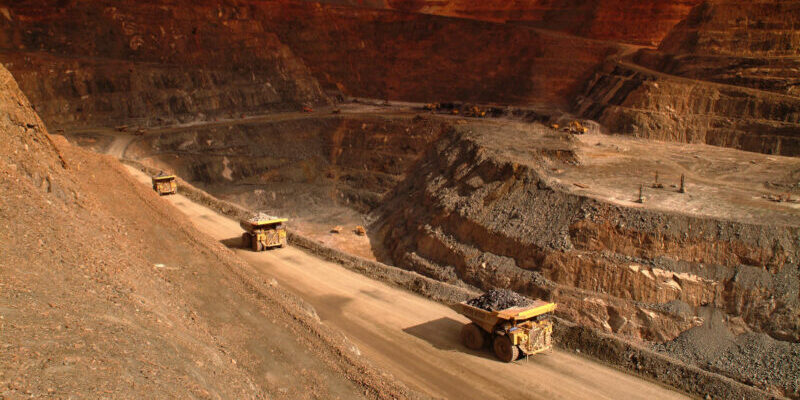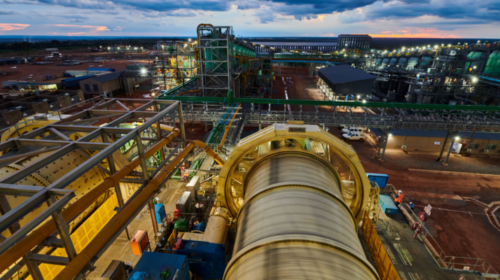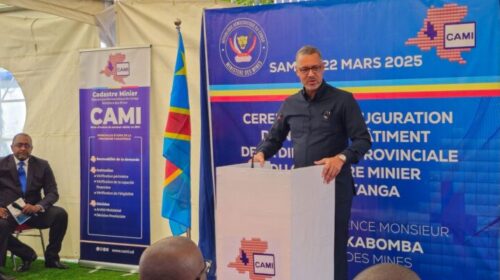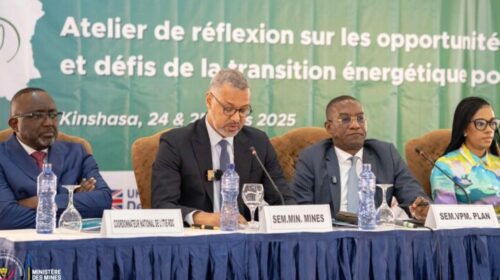DRC Imposes Record $4.3 Million Fine for Mining Transparency Violations
As of January 1, 2025, individuals and entities in the Democratic Republic of Congo (DRC) face a $4.3 million fine for obstructing transparency and traceability in the mining sector.
This penalty, outlined in Decision No. CAMI/DG/003/2024, was issued by the Mining Cadastre (CAMI) on December 16, 2024, marking the most severe enforcement action under the country’s amended Mining Code. Despite its significance, the ruling has received little public attention.
The updated fines stem from Article 375 of the 2018 Mining Code, which mandates annual revisions of fines in foreign currency, based on input from the Central Bank of Congo and approval from CAMI’s leadership.
Since the 2018 revisions, fines for mining violations have increased at least four times, with the latest adjustment multiplying the previous $429,122 penalty tenfold.
Recent fine increases include:
- $1.23 million in 2021
- $1.07 million in 2022
- $4.3 million in 2025
The latest hikes aim to enforce stricter compliance in a sector that accounts for over 95% of the DRC’s export revenues. In addition to transparency violations, fines for at least a dozen other mining offenses have also been doubled, quadrupled, or increased tenfold.
The new penalties align with government efforts to combat smuggling and illicit trade, particularly in response to the activities of M23 rebels, who, with alleged Rwandan support, have invaded parts of the DRC.
These rebels occupy key mining areas, including the mineral-rich Rubaya region, as well as strategic cities like Goma and Bukavu.
Meanwhile, the DRC’s mining administration is working to enhance oversight in other regions. The recent inauguration of a Mining Registry building in Katanga, another critical mining hub, signals efforts to bring regulatory authorities closer to industry players and enforce compliance.
Updated Fines for Mining Violations (Effective January 1, 2025)
| Violation | New Fine (USD) | Previous Fine (USD) |
|---|---|---|
| Obstructing transparency and traceability | $4,291,222.57 | $429,122.24 |
| Fraud and looting of natural resources | $2,145,611.26 | $1,072,805.65 |
| Illicit activities | $1,072,805.65 | $42,912.25 |
| Illicit purchase and sale of minerals | $128,736.67 | $42,912.25 |
| Theft and concealment of minerals | $85,824.43 | $21,456.11 |
| Embezzlement of minerals | $85,824.43 | $21,456.11 |
| Illicit possession of minerals | $85,824.43 | $8,582.43 |
| Illicit transport of minerals | $85,824.43 | $8,582.43 |
| Facilitation of mineral diversion | $42,912.25 | $21,456.11 |
| Human rights violations | $42,912.25 | New offense |
| Health and safety violations | $42,912.25 | $21,456.11 |
| Destruction or damage | $42,912.25 | $21,456.11 |
| Obstructing mining administration | $42,912.25 | $8,582.43 |
| Violating ministerial/provincial decrees | $42,912.25 | $4,291.24 |
| Insulting or assaulting officials | $21,456.11 | $4,291.24 |
| Failure to report change of address | $21,456.11 | New offense |
| Corruption of public officials | $4,291.24 | New offense |
With these new penalties, the DRC aims to strengthen governance, curb illegal activities, and ensure a more transparent mining sector, reinforcing its position as a global mining powerhouse.
![]()





